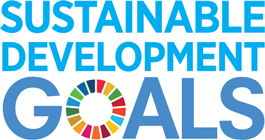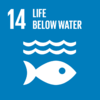How can we accelerate progress on Goal 14 Life Below Water?
Session 2
Nov 28 '18 2:55pm–Nov 28 '18, 4:35pm GMT
Summary of Discussion
What about action?
- Buy sustainable seafood as consumers
- Brands should use simple, understandable messages to motivate consumer sustainable choices
- Help businesses make their commitments meaningful
- Need to work together as an industry
- Acceleration requires political will
- Industry should support the development of appropriate regulatory infrastructure
- Continue expanding the reach of standards and laballing organisations to those data deficient or in unregulated areas
- Develop a more central 'convening space' for greater range of stakeholders to share and develop initiatives
- Advocate and collaborate for solutions beyond the existing
What is the potential for labelling and standards organisations to contribute to the challenges we've discussed?
- They have got a part to play but they are not the panacea
- They connect producers with end consumer through multi stakeholder engagement
- They are applicable around the world
- They simplify action for consumers by giving them clear guidance
- They can adapt in time to the evolving concept of sustainability
- They can reach fisheries that would be otherwise overlooked by governments
- They give clear targets and third party recognition to fisheries
- They can effectively harness market forces to promote sustainable production
- They can use "emotion + evidence + reassurance" formula to engage consumers
What are the different challenges for large-scale industrial fishing and small-scale fisheries?
- Management is what matters in either kind
- Solutions for small-scale are more complex as they typically involve larger number of individuals or vessels, are poorer and often more disadvantaged
- Both kinds face enforcement issues. Large-scale are far off-shore while small-scale are more numerous.
Who should be doing what? How can different stakeholders contribute?
- Brand owners/processors should ensure a higher amount of sustainable fish enters the market
- Greater communication along the supply chain
- Stronger prevention through collaboration
- Operationalizing outcomes from global dialogue, moving towards action while tracking outcomes and reporting on them
- Consumer/public education and empowerment to encourage sustainable choices
- Governments need to take accountability
- Join NGO forces in areas of consensus for greater resource efficiency
- Businesses should work harder on full supply chain traceability
- Cost-sharing to prevent "race to the bottom"
What about solutions? What initiatives are making most impact?
- Global initiatives like the Paris Agreement on Climate Change
- Need for international intervention at a greater scale
- Rebuilding fisheries while keeping tight control of limits on fishing will reduce time spent at the sea
- Understanding the issue deeply, collecting better data
- Adhering to Harvest Control Rules and Port State Measures Agreement
- Greater collaboration in the private sectory and advocacy
- Initiatives like The Ocean Cleanup and Blue Planet help creating a sense of urgency
- Improving management and efficiency through more data sharing among stakeholders
- Best practice sharing is important among organisations making great progress already
What have been the barriers holding up progress of SDG14?
- Need to breakdown issues into manageable problems to tackle
- Lack of political will
- Short term thinking
- Stronger cooperation along value chains is needed
- Lack of emotional connection with the oceans, their vast scale and large unknowns. Need to connect people with the sea.
- Getting the right stakeholders "in the room" to tackle the issues
- Need for science-based decision-making and better data
- Need for better enforcement, monitoring, control and market-based programmes, all playing their part
Climate change, pollution and overfishing - which of these three big issues is the most important to address?
- There is not one that is more important to address than the others
- Climate change highlighted as most important but most challenging as well
- Overfishing and pollution may be more controllable at the moment
- Tools are readily more available to fight overfishing
- Ending overfishing contributes to ocean health and reduces impact of other stressors
- Highlighted Importance of looking at the issues together
Meet our Special Guests
Florian Baumann
Quality Manager
Nomad Foods
Nomad Foods
Ryan Bigelow
Senior Program Manager
Seafood Watch
Seafood Watch
Perrine Bouhana
Associate Director
GlobeScan
GlobeScan
Tracy Cambridge
Responsible Sourcing Manager
Thai Union
Thai Union
Steve Hall
Consultant
Avalerion Capital
Avalerion Capital
Rupert Howes
Chief Executive
MSC
MSC
Keith Kenny
Vice President, Sustainabil…
McDonald's Corporation
McDonald's Corporation
Amanda Nickson
Director International Fish…
The Pew Charitable Trusts
The Pew Charitable Trusts
Chris Ninnes
Chief Executive Officer
Aquaculture Stewardship Cou…
Aquaculture Stewardship Cou…
Andrew Papachrysou
Procurement Director
Nomad Foods
Nomad Foods
Session Moderator
Caroline Holme
Director, GlobeScan
United Kingdom
United Kingdom




Posts
Back to Top